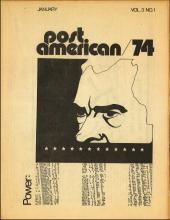Costa-Gavras’ latest film, “State of Siege,” leveled the serious charge that the United States operated a secret police bomb school where Third World policemen were trained in the manufacture and use of explosive devices to be used against political opposition in their countries. Senator James Abourezk (D-S.D.) has unearthed State Department papers which clearly document that charge. The existence of the Abourezk papers was first disclosed in Jack Anderson’s syndicated column on October 8, but a more detailed account of their content occurred more recently in a Pacific News Service article written by Michael Klare and Nancy Stein. The following information comes from that article.
The papers show that the U.S. government is, in fact, training foreign policemen in bomb-making at a remote desert camp in Texas. In response to Senator Abourezk’s inquiries, the Agency for International Development (AID) has now acknowledged that its Office of Public Safety is providing such instruction.
At the U.S. Border Patrol Academy in Los Fresnos, Texas, foreign policemen are taught the design, manufacture, and potential uses of homemade bombs and incendiary devices by CIA instructors. At least 165 policemen--mostly from Third World countries of Asia, Latin America and Africa--have taken this “Technical Investigations Course” since it was first offered in 1969. All costs of the training ($1750 per student) are borne by AID.
Read the Full Article

